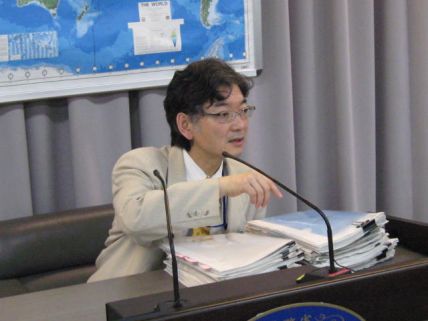|
|
Op-Ed
Editorial: Japan Must Lead on Nuclear Nonproliferation
Thursday, July 1, 2010
 Sobashima
Sobashima
This week Japan began talks with India on a civilian nuclear energy agreement. We urge the Japanese government to reconsider its stance on this issue - one that may be as large as the human future.
History itself dictates that Japan play a special role in the global debate over nuclear weapons. Japan must be a genuine leader when it comes to nonproliferation: Which country knows better the tragic price of failure in this sphere?
The international community has a framework for dealing with nuclear weapons nonproliferation: It is the NPT and IAEA. Although not without serious flaws, these instruments are the best that the world currently has to offer.
India submits to neither.
Rather, New Delhi cut a special deal with the Bush administration outside of the usual channels, and then Washington used its wide influence push this sweetheart deal through the Nuclear Suppliers Group in 2008.
Global efforts aimed at nuclear nonproliferation are not served by such evasions of the NPT framework.
Nevertheless, Tokyo, following its ally as usual, has convinced itself there is "a kind of international agreement that India is honoring its commitment to nonproliferation."
But is that really true? Does India's stockpile of nuclear weapons have no implications for nonproliferation? Did India's nuclear tests have no effect on nonproliferation? Is India now accepting full international inspections of its nuclear facilities?
How, precisely, is India a model of good citizenship when it comes to the issue of nuclear weapons?
Japanese diplomats cite three reasons for allowing a Japan-India nuclear agreement: the positive effect on climate change, the benefit for bilateral relations; and the impact on Japan's own industry.
As for the first point, it's unclear if Japanese cooperation with India's nuclear program will have any specific impact on climate change. If the NPT regime is weakened and this eventually leads to the actual use of nuclear weapons somewhere in the world, we feel pretty confident that this will not be a boon for the environment.
As for the second point, there's little doubt that any trespasser will be more pleased to have his trespasses easily forgiven than to be held to strict account. Of course that might make for more upbeat bilateral relations.
As for the third point, this is about as close as any diplomat will ever come to saying that money and business trump political principle when the potential profits are high enough.
No matter how they may try to hide themselves behind appeals to the "international community," the fact remains that Tokyo is sacrificing the existing NPT regime for the sake of political and economic expediency.
If Japan cannot protect even its non-nuclear principle, on what issue will they ever hold the line?
PanOrient News
© PanOrient News All Rights Reserved.
|
|

